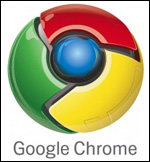Over the Labor Day weekend, Google fed the tech blogosphere a chewy piece of news — the equivalent to peanut butter — the Web couldn’t stop chattering about it. They’re planning on a new project aimed at the Web browser market. I might as well share my feedback on it since I was asked by a couple people this morning.

Even with my critical perspective on Public Relations, I will admit that this was a great moment in PR for the largest company on the Web. Kudos, Google!
— Anyhow —
It’s not that Firefox doesn’t suffice or that they will realistically leave Internet Explorer in the dust. It’s clearly a decision made by their business development team, seeking to attract engaged users who love all-in-one software. (Somewhat like a prognosis of this company.)
Google’s decision to create a Web browser is for one reason: targeted advertising. It’s not just the on-going ads that matter to users; it’s the engagement of those ads. This is especially important and provides the right motive for Google to do so in light of their downward click-through-rate (CTR) trend.
Targeted advertising aside, one can ascertain that the fact that Google is seeking to improve their relationship with their users. From merely a intermediary destination to more functional primary destination. This will provide more opportunities to mature those relationships and engage users with more creative assets. Content is the only asset lacking; Google still aims to provide content by means of automated crawlers and place users in control of their editorial experience.
If I was Mozilla or Microsoft, I wouldn’t be all too threatened by Google Browser. In light of the upcoming consumer feature; privacy clouds Google’s dangers. If they can amplify and provide anonymous browsing and anonymity services built-in it may prevent concerned users from jumping on over. Google could rebut these concerns by placing Consumer Privacy at a very rung on their software’s features.
For now, I’m sticking with Firefox, but I may try it out just to see and perform deeper scientific analysis as to the browser’s functions and features. Before people jump to Google, I strongly recommend Firefox for reliability, privacy, speed and performance.
